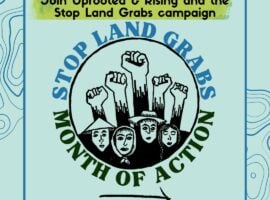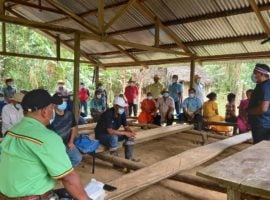I have come to know that our connections to one another, the earth, and ourselves may be the force needed to realize the change we seek.
I grew up shuffling back and forth between Portugal and the United States all of my life. With a Portuguese father and an American mother, food became our currency and greatest translator. In Portugal, I ate fresh Amêijoas à Bulhão Pato (steamed clams) straight from the sea, Caldo Verde (Portuguese green soup) made from farm-fresh vegetables, and bacalhau (codfish) dried, frozen, soaked, and fried. Portugal is where I learned that it was not just the flag that symbolized national pride, but the dinner plate.
Until I was eight years old, I lived primarily in Lisbon, where markets are veritable food paradises stocked to the brim with fruits, vegetables, meat, and cheese. Grocery shopping with my grandmother became a regular ritual where she shared stories of each ingredient as she loaded them into our basket. It was on one of our most recent trips to the market I heard her say with deep sadness that, “As coisas já não são as mesmas em Portugal. Nós agora somos como tu, industrializados e embalados” (“Things are not the same in Portugal anymore. We have become like you (in the United States), industrialized and packaged.”).
I fell in love with food on these trips with my grandmother—but it was my mother’s influence as a Registered Dietitian, home cook, and mindfulness teacher that cemented it. This love affair has led me to work in various parts of our food systems for the better half of my life. While studying in college, I worked on both an urban farm and in a restaurant, leading to a deep understanding of both farm and table, as well as the systemic challenges connecting the two.
On the farm, I worked with the Tallahassee Food Network to grow a strong community-based food system that bridged lines of division such as neighborhood, income, race, and gender, collaborating directly with the founder to create spaces for our community to gather, act, commune, and organize. One of those spaces was our monthly Collards & Cornbread meetings, so named for the southern staples’ ability to bring people to the table cross-culturally—because if there’s one thing every southerner can agree on, it’s good food. It was in these meetings I realized that building an alternative food system requires social power and political will. These meetings provided a space for activists to draft ordinances and policy changes, build social enterprises, brainstorm projects to change local food environments, start new farmer’s markets, educate youth and write new curricula, establish food policy councils, conduct research, and so much more. As Leonie Sandercock so aptly describes in her seminal book Towards the Cosmopolis, it was a meeting of 1,000 tiny empowerments, where groups of people work independently from one another, but come together towards the same goal. Inspired by her work, I have come to know that our connections to one another, the earth, and ourselves may be the force needed to realize the change we seek.
This understanding led me to WhyHunger, a grassroots support organization working to end hunger and advance the human right to nutritious food in the U.S. and around the world, where I’ve worked for the last three years. As the Social Impact and Engagement Manager, I’ve learned to sort through numbers, facts, and figures and draw out their teachings in order to tell stories and make educational tools that demystify global policy and food system issues. This is especially timely as the COVID-19 pandemic continues to devastate communities, exposing long-time inequities, exacerbating impacts of climate change, and intensifying food insecurity in cities across the globe.
Over two billion people experience hunger each year, many of them small-scale farmers and most of them women, youth, Black, Indigenous, and people of color. At the same time, scientists warn that we have little time to curb greenhouse emissions before there are devastating impacts on human life. Now more than ever, it is crucial for grassroots organizations, farmers, researchers, governmental and private institutions to develop resilient agricultural systems…such that ecosystem functions and services can be maintained and livelihoods can be protected.
Food production, climate change, and the simple act of eating are intrinsically intertwined. In Portugal, there is no better picture of this than in June, when communities across the country gather for the Festivities of the Saints. Although the festival is meant to honor Saint Anthony, the tiny, oily, grilled sardines are most revered. During a typical June, it’s said that the Portuguese collectively eat 13 sardines every second – around 34 million fish for the month. But as climate change warms the seas, fisherfolk are finding it increasingly difficult to meet such demand. In 2018, just a week before the festival, authorities halted sardine fishing out of fear of overfishing. Over the past several decades, the world’s oceans have warmed and growing patterns have shifted, greatly impacting our culture, habits, and tradition. And the Festivities of the Saints is just one example.
My work at WhyHunger continues to teach me how connected hunger, identity and climate change are. To truly build a world without hunger, is to understand culture and connection, social structures and resilience. It’s to know duality: the individual and the collective, scarcity and abundance, violence and triumph, control and adaptation. It is to understand that, although ever-changing, food remains deeply rooted in socioeconomics, politics, tradition, and history.
Melanie Marques is WhyHunger’s Social Impact and Engagement Manager, working to bring the organization’s impact to life through beautiful design, content creation and storytelling.








